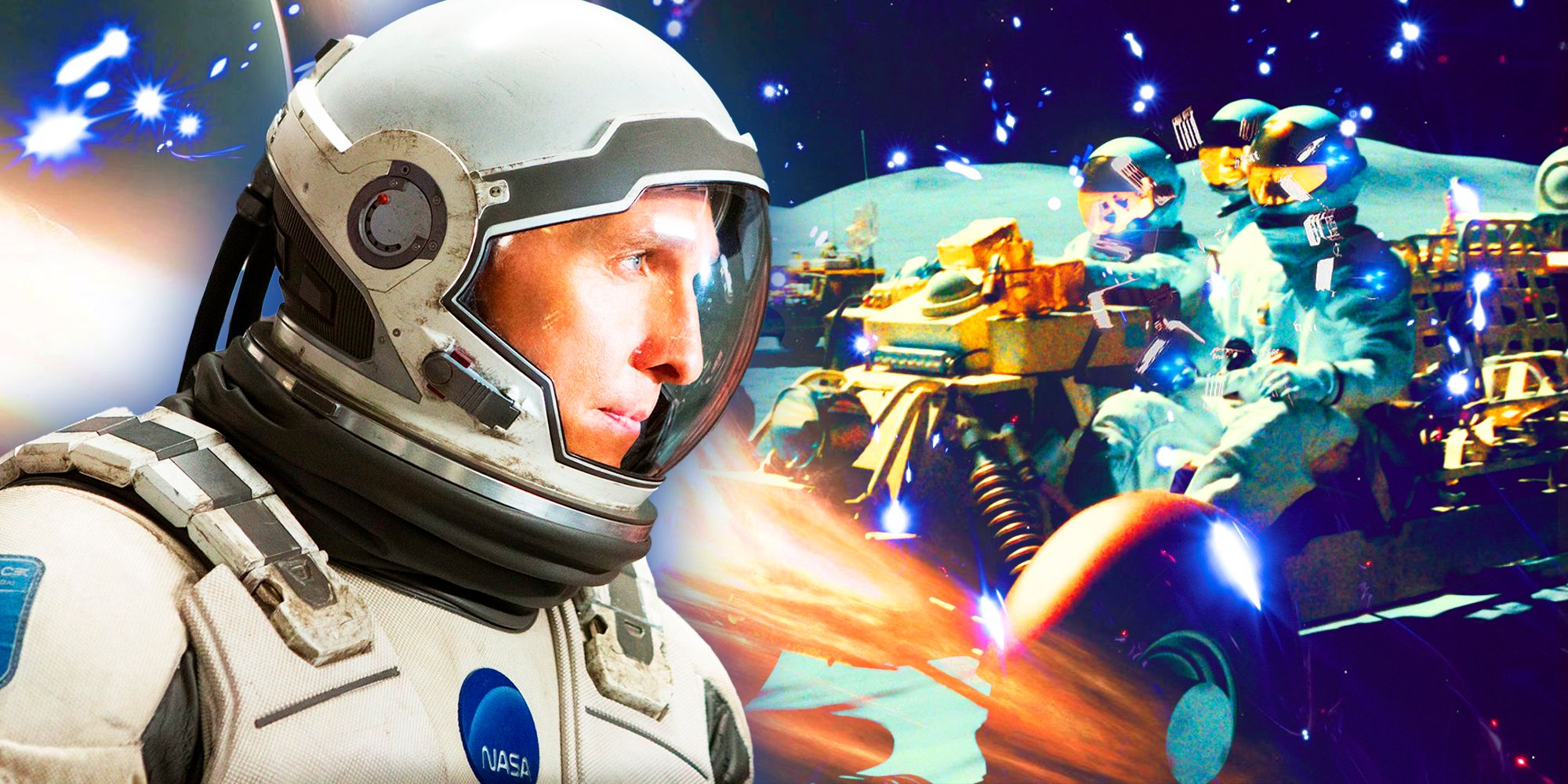Summary
- Gravity, Interstellar, & The Martian revitalized space movie genre in early 2010s with stellar achievements.
- Despite following films like Oblivion & Geostorm, genre popularity waned due to lack of innovation.
- Non-franchise space movies provide unique, awe-inspiring experiences, but genre is unlikely to see resurgence.
Hollywood is built on trends, and about a decade ago, it was on a hot streak with incredible space movies, but that trend appears to be firmly in the past. It makes sense for Hollywood to follow what’s trending, and it’s led to some really exciting eras in film, with the rise of horror in the 1980s and 1990s, the age of superheros in the 2000s and 2010s, and many more. However, it can be a real shame when the trends die and what grows to be a captivating genre goes to the movie graveyard.
Of course, some trends are big enough to survive the cycle, and they simply become more niche, like slasher movies, but this is not the same for all trends. Vampires were big for about a decade, with countless vampire movies coming out until the creatures that used to be monsters just became awkward reflections of the originals. However, the trend of space movies had an even shorter lifespan during the 2010s.
Gravity, Interstellar, & The Martian Were Released Between 2013 And 2015
A String Of Award Winning Space Movies
Within just three years, three of arguably the best space movies of all time came out back to back. Gravity by Alfonso Cuarón came out in 2013, winning seven Oscars for its incredible cinematography, direction, and sound. The following year, legendary director Christopher Nolan released Interstellar and literally changed how people see certain parts of space thanks to its incredible rendering of black holes. Then, in 2015, Ridley Scott released his space movie, The Martian to critical acclaim, landing seven Oscar nominations.
These films were absolutely huge, and it’s incredible to think that they all came out within such a short span of time. However, since then, there have been incredibly few space movies in general, and certainly none that have managed to climb to the same heights as these big three. Each was directed by top tier directors, and starred A-list stars with a wealth of experience behind them, but that still didn’t help to push the space movie genre to the fore and establish it as a stable genre.
What Other Great Space Movies Were Released In The 2010s
Throughout the rest of the 2010s, a few more films tried to build on the trend, but whether the trend started too strong and couldn’t keep pace, or simply tapered out, by 2020, it was practically dead. Oblivion, Geostorm, First Man, and Ad Astra continued to land big stars to lead their films, but they didn’t have the same spark or innovation as those mentioned above. These movies tried to keep the trend going. Unfortunately, they didn’t succeed.
If I had to guess at why the other movies were nowhere near as successful, I would say it was a combination of the earlier films outshining them to such a high level, and the fact that it’s difficult to make a movie that exists wholly, or even mostly just in the space genre. Most space movies cross into sci-fi, or they introduce aliens and robots and become something very different. For a movie to stand out as a space movie, it needs to put space at the front and center, and really showcase the spectacular expanse.
I’ll Always Be Interested In Non-Franchise Space Movies
Franchise Films Have A Place, But Standalone Movies Can Be Great
The thing is, I really do love those other movies that blend genres. Star Wars has cornered the space opera genre, and now Zack Snyder is trying to claim some space in that realm with his Rebel Moon movies. Alien masterfully delivered space horror and sparked a whole new subgenre. And superhero movies like Guardians of the Galaxy and Captain Marvel stretch out beyond the stars, but they exist on a very different plane to typical space movies.
For a movie to stand out as a space movie, it needs to put space at the front and center, and really showcase the spectacular expanse.
In an age where everything seems to be in a franchise, it’s nice to sometimes have films that just build a solo story. Rather than becoming something that is expansive and takes weeks to catch up with, a great space movie can tell a complete story in roughly two hours and leave the audience in awe of the universe around them. That’s a huge part of what made Interstellar, Gravity and The Martian such great movies in the first place. However, the age of space movies seems to have come and gone, and it is unlikely to come back anytime soon with the current landscape of cinema.









